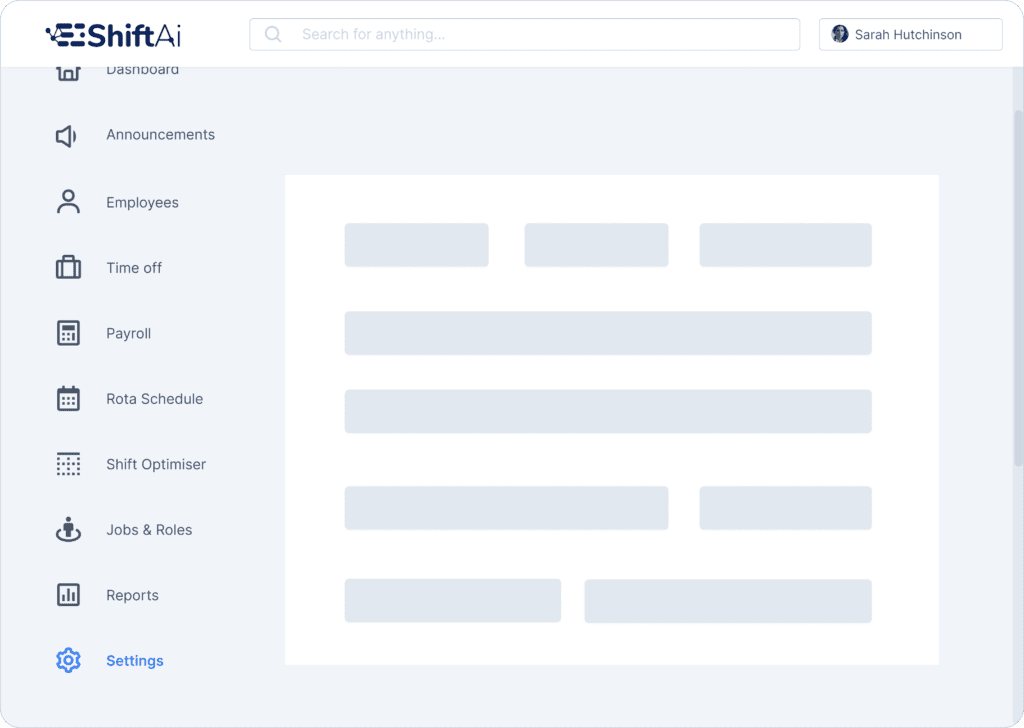Introducing Charles Cammiade, a driven entrepreneur and the co-founder of Shift Ai. What experiences and advice can he share related to his business journey?
What is your background?
“I worked for standard blue-chip companies in the UK and the US after university, did my MBA in the USA, got a taste of Google in San Francisco, and then embarked on the start-up life.”
Do you have any qualifications?
“Yes, a bachelors of science and an MBA”
What does your business do?
“We make software to let micro-SME owners and managers to take control of their HR and payroll processes with several clicks and for just £1 per employee per month”

Why and how did you start your business journey?
“We started in late 2017 when we realised that companies were routinely paying for tasks that software could automate and that many people spent a lot of hours doing the repetitive work of updating information in Excel.”
How did you come up with your business idea and business name?
“We came up with the concept of eliminating the monthly payroll rhythm because of the repetitive processes involved; as employees, we are eager to see our own payslips – except there were always random deductions. We thought it could be better than questioning deductions and getting on HR’s nerves; we figured we could create software that would calculate and let people know immediately how their calculations were made to better understand their payslips.”
Did you have any other ideas in the beginning?
“Yes we had many. Ideas are great, but each idea needs research, some initial testing if it is good enough, and then the commitment to turn the project into a company and generate revenue. It is amazing when revenue first turns up and you get validation that someone out there is willing to pay for the product that you’ve created. One of our ideas was to make a coupon app to get the supermarket deals on meats, how different is that from a HR software product. I think the hardest thing was trying to understand how much work, in terms of time, effort, cost, it was going to take to get to our MVP. I mean, if we were building the next operating system we’d need about 10 years and $500m, whereas building the next online e-commerce store to sell trainers would take a month and a Shopify fee or one month on Webflow. I think this is where reality bites: without support, funding, government, places like the PBC to sit and work, it all adds up. So making the next flying car, though possible, was not possible to us.”
What inspires you to do what you do?
“We are continually improving the product based on customer feedback. One thing that entrepreneurs are is confident. We’re the type that will take apart a Mac monitor and rebuild it, or fix the broken mobile phone screen ourselves. All you’ve got to do is read a blog post or watch a YouTube video. And with an optimistic attitude and intelligence, we’ll do it. However, valuing experience is something that I’ve come to realise is so important. Second time round, or third time, it is all easier. Hence, you learn a lot from the mistakes in the first project, or how you should’ve architected the product better or that you should’ve used a mail campaign and not spent so much on Google Ads, etc. So, we’re constantly learning and implementing feedback into our work.”
What’s your next step?

“Our next step is to continue building out the product and adding product extensions. For example, when you create the MVP, it is the worst, most simple product you can imagine. However, it has to be good for someone, otherwise no one will use it. So, for us, we built an HR product, but it was bad compared to the other established products.
Hence, we just kept building and building, and adding features that would appeal to the micro-sized businesses. Then, the product went from being perfect for one customer to 20, to 100, etc.
We think of it as making the first pair of trainers. In the 1970s we had the plimsolls, and they were great. Then Phil Knight added thick rubber soles (by learning from the Japanese) and then kept on improving until trainers went from just one particular sport to all sports and then into general life. That to me denotes the product adoption cycle, the product starts to appeal to a specific customer, then a set of customers, then to many customers. Remember how nearly everyone was dismissing Elon Musk’s electric sports car back in the day? Tesla was considered a joke and only wealthy environmentalists bought the car. Then, it added the Model S, and executives started buying, then Hollywood types, then came Model 3, and all of a sudden loads of people started buying. Though we’re incomparable, I’d like to think we, just like anyone else, can think of ideas and the customers that would like the features to make our product more appealing to them.”
How has your journey been so far?
“It is a not a straight line, and acquiring customers has been much tougher. Before I started, I remember a case study from business school days about the Aqualisa power shower. Back when it came out, it was an antidote to the low pressure showers and the taps connected to shower heads in England. However, no one was buying them. A great product doesn’t sell itself. The CEO discovered that plumbers were reluctant to install them and advised customers against installing a new product without a track record and a complicated install process that included installing an electric pump, and persuaded many to go directly to the old-style electric shower. The CEO then decided to take out an ad in a national newspaper and give customers a coupon for installing the power shower; this meant that the customer was able to deflect the relentless naysaying from his plumber. And surely enough, sales of the power shower went through the roof. That’s a nice story, we’re still trying to work out how to do the same metaphorically for us!”
What’s your business dream?
“One that generates real value for the community, generates profits in the top segment in the industry in which we operate, and one in which we rank in the top three for market share. Jack Welch’s rules.”
How do you define success?
“That’s hard to say, as each person has his or her own idea of success. I’d like to equate success with happiness.”
What’s your advice to other people who have business ideas?
“My advice is to be careful from whom you get advice.”
How has PBC helped you?
“It let me know there is a community, and yet our missions are autonomous and non-collaborative, like studying in your bedroom for the next school test – there are many others studying in their own bedrooms for the same thing. It’s more fun to be in the library and see all the others who are also studying.”
Would you recommend PBC?
“Yes, because it is good for milestones and to speak to if you have questions and need intros.”
We wish you all the best with ShiftAi!
Learn more at shiftai.co.


